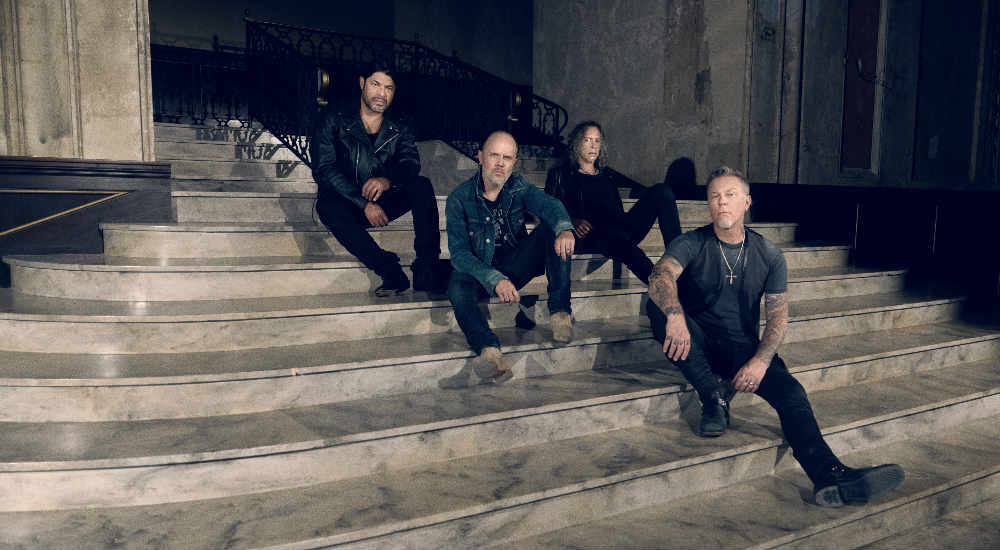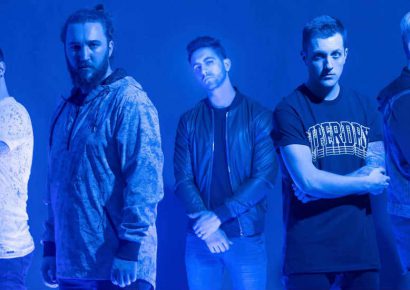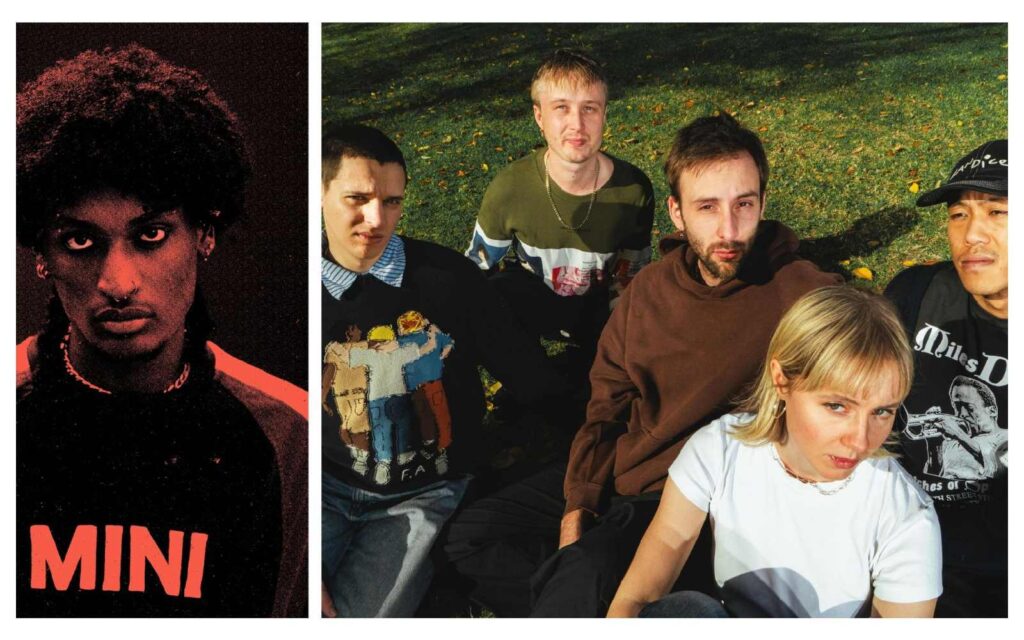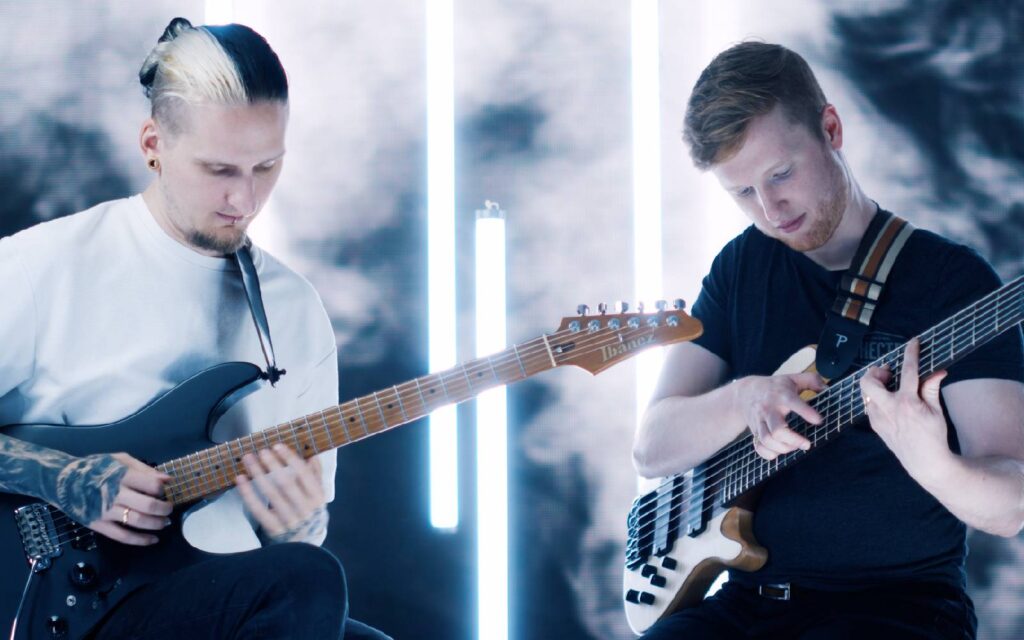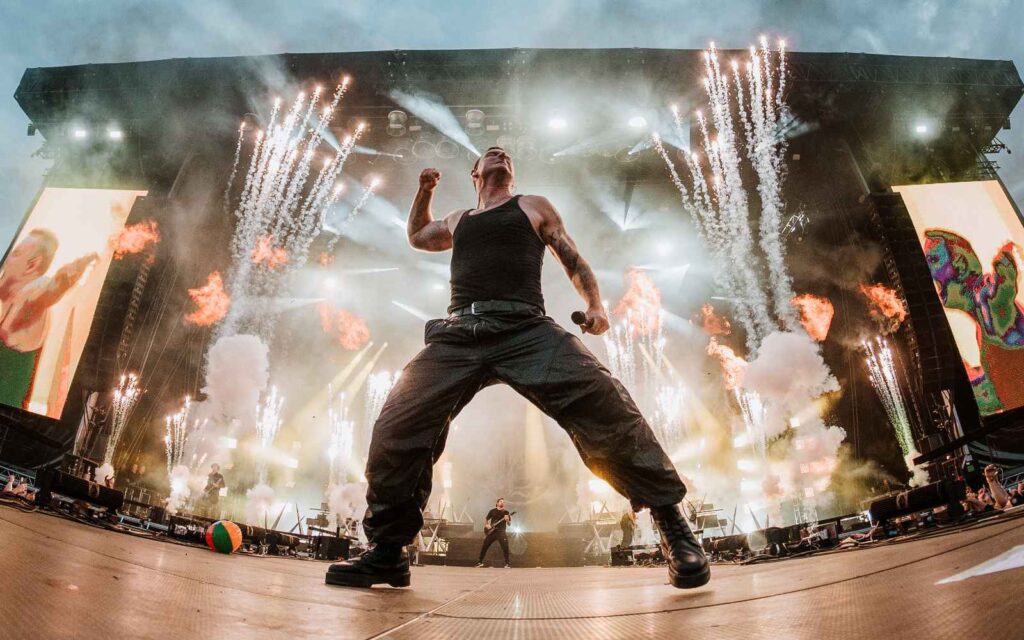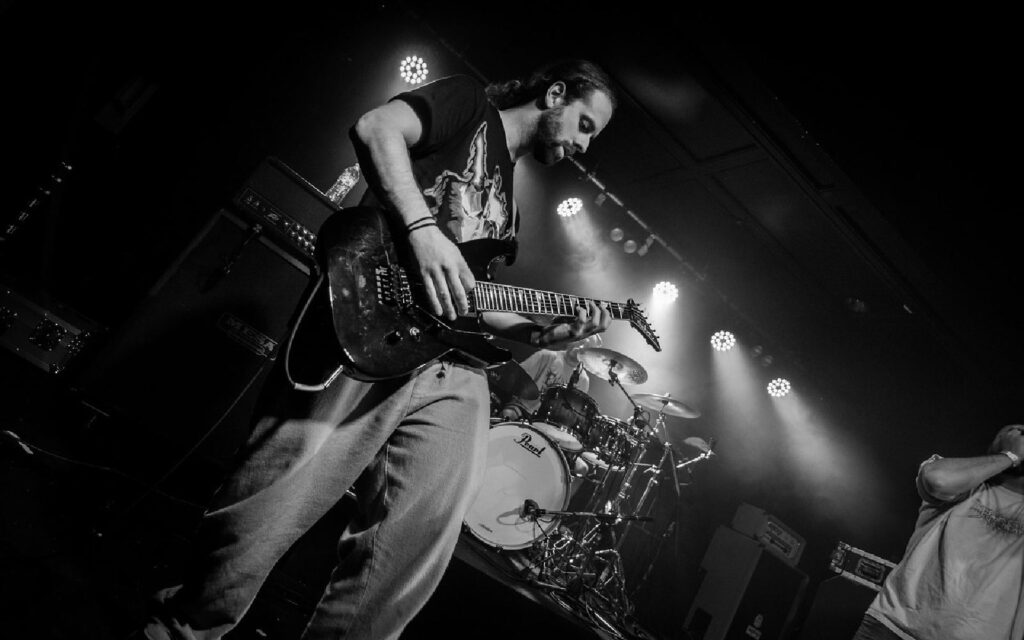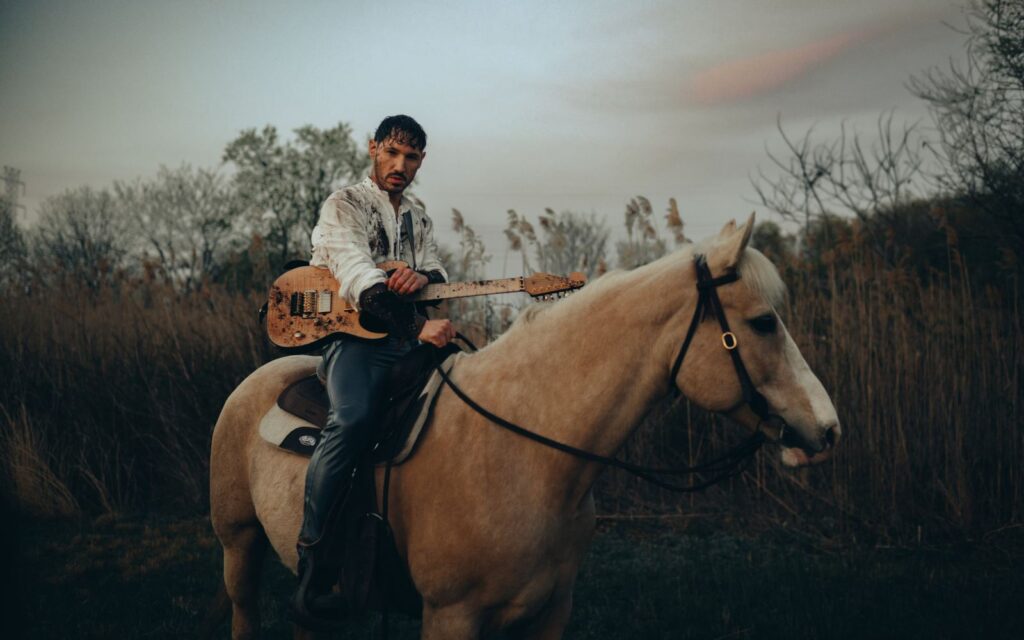We Sit Down With Kirk Hammett Ahead Of The Legendary Band's Australian Tour
Metallica are bringing their WorldWired tour to Australia this October. The Bay Area metal luminaries were last here for Soundwave 2013, making this their first visit since releasing album number ten, Hardwired… to Self-Destruct, in 2016.
The WorldWired tour has already covered North America, Europe, Latin America and Asia and the tour setlists have included songs from every Metallica album except for 2003’s St. Anger. Material from Hardwired gets plenty of coverage, nestling in alongside Metallica classics like ‘Enter Sandman’, ‘One’ and ‘Seek & Destroy’.
Read all the latest features, columns and more here.
“We play about four or five songs from Hardwired and they fit in well with all the other songs,” says lead guitarist Kirk Hammett. “People seem to identify with them and get some sort of emotional reaction.
“Technically speaking none of these songs are that hard to play, at least from my viewpoint. It’s not like I’m playing jazz chords or something like that. It’s heavy metal and we’ve been playing it forever. After a while they become a part of you and you can really watch yourself play it – the difficult part of it melts away.”
It helps that Hammett maintains a committed guitar fitness routine off-stage. Hammett’s career dates back to the late-1970s when he co-founded the thrash metal band Exodus. He joined Metallica in the lead up to their 1983 debut, Kill ‘Em All, replacing original guitarist Dave Mustaine. But despite such a lengthy tenure, his instrument of choice has lost none of its allure.
“Playing guitar calms me down and excites me in the most positive way,” he says. “I’m sitting in my room right now staring at Greeny [a 1959 Gibson Les Paul formerly owned by British blues guitarist Peter Green]. For the rest of the day I’m just going to be playing my guitar, which is what I do day in, day out other than being a father and taking a break to go for a surf or go for a run.
“I constantly come to realisations about music and my own playing and it’s a never-ending experience for me. Because I have a curious nature, I’m constantly listening to different types of music and wondering how different types of music are played.”
Hammett’s famous for playing customised ESP guitars as well as a selection of vintage Les Pauls. He’s also interested in experimenting with a variety of different models in the hope of expanding his technique and introducing new sounds.
“I have a jazz hollow body, I have a nylon string guitar, I have a Strat. It’s just nuts. I have my core collection of like 20-30 guitars I really love and try to play a lot. They’re guitars that a lot of people are familiar with. I’ve used them in studio or played them live,” he says.
“A lot of times I’ll feel like playing a Strat onstage, which is kind of weird. It changes the sound of the band when I play a Strat, but it’s really cool for me to do something like that because it’s a different tonal colour.
“We just recently played the Chris Cornell tribute show and I played a [Gibson] ES-335 onstage because I knew Chris liked ES-335s. It played so well onstage I decided to take it on tour with me.”
Metallica’s Australian run sends them to a number of sports stadiums around the country. The metal icons have been playing to massive audiences for decades, and public enthusiasm isn’t dwindling. WorldWired’s Mexico City stop attracted 197,000 people and there have been dozens of shows for crowds in excess of 40,000.
“I feel really blessed and extremely fortunate to be with three other guys making music that reaches so many people,” Hammett says. “I feel very blessed to be in a situation where I can help people through our music and my guitar playing. That’s what means the most to me.”
Metallica are one of the most commercially successful bands of all time, but fame hasn’t splintered the core group of Hammett, vocalist/guitarist James Hetfield and drummer Lars Ulrich – all of whom have been there since album number one.
“What really matters is that we play well and that we’re all functional and healthy and we get on,” Hammett says. “I hear about some bands and I’m just like, how could they even stand for that? It’s like how every family’s different; every band is different.”
Hammett, Hetfield and Ulrich have seen a few bass players come and go however. Cliff Burton, who played on the first three records, tragically died in a bus crash while on tour in Sweden in 1986.
“It was really unfortunate what happened with Cliff,” Hammett says. “I get deep emotional pangs and I just think about what a great guy he was and how beautiful he was and how funny and emotional he was, and sensitive.”
Jason Newsted joined as Burton’s replacement for 1988’s …And Justice For All, but departed prior to St. Anger. Former Suicidal Tendencies bass player Rob Trujillo completes the current lineup, appearing on Hardwired and 2008’s Death Magnetic.
“Rob is just such an amazing musician. He plays ‘Anesthesia’ like it was composed for him. It’s a Cliff Burton composition; Rob Trujillo plays the fuck out of that. ‘For Whom the Bell Tolls’ too, when Rob plays it he plays it with full authority. He can hang with anything we throw at him.”
The WorldWired tour is scheduled to last until November 2019, after which it could be time to hop back in the studio.
“When I was 13-14 years old, bands put out albums every year,” Hammett says. “Seriously, Kiss put out an album every eight months. None of this eight years between albums. None of us are very comfortable with the fact it’s been so long, because that is a long time. We’re hoping to avoid that this time around.
“We’re in our third year since Hardwired. Maybe we can get a bit more focus and go into the studio a bit sooner. I have a tonne of material. I’ve over-compensated, so I’m ready to go anytime.”
Metallica’s WorldWired tour kicks off Thursday October 17 at Perth’s Optus Stadium.
